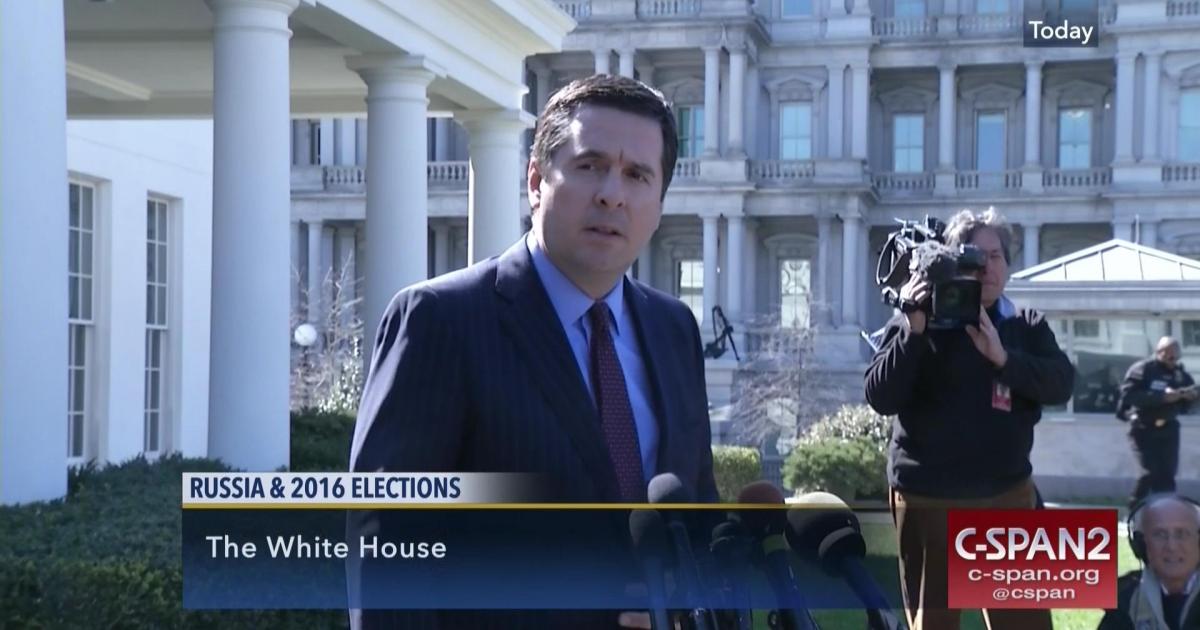by Paul R. Pillar
After more than a year of excesses by a president whom not only centrists and progressives but also a thinking conservative such as George Will can aptly assess to be the worst U.S. president ever, outrage fatigue has set in on many fronts. Throwing government ethics into the trash, indulging in other personal conduct that once would have been a certain disqualifier for higher office, and so on—Donald Trump has given the outraged too much ground to cover. Even just limiting oneself to high policy, it is hard to know where to start: the plummeting of the standing of the United States in the eyes of the world, the acceleration of a drive toward global environmental catastrophe, or something else.
A good case can be made, however, for prioritizing the attacks on critical institutions of American liberal democracy. This part of the Trumpian record also has several facets, including, for example, the assaults on a free press. But the one facet that has reached a fortissimo in recent weeks, and in some respects is most alarming, is the effort to take down the Justice Department and FBI and to make law enforcement servile to narrow political objectives.
One must always include the caveat that tomorrow or next week this president may do something else—such as reckless nuclear brinkmanship—that may warrant even louder and more immediate alarm bells. But there is a good reason that interior ministries, internal security services, and national police forces are among the first institutions that aspiring authoritarians want to subdue and control. They are the means for turning what had been a democracy into a police state.
Some among the outraged have looked for glimmers of hope, perhaps in the interest of avoiding mass despair. Washington Post columnist Richard Cohen, in likening Trump to the commie-hunting demagogue Senator Joseph McCarthy, noted that McCarthy overreached when he attacked the Army, and that “Trump may have overreached by going after the FBI.” Cohen does qualify this glimmer by further observing that “McCarthy, an alcoholic, wrecked himself, but I wouldn’t count on Trump doing the same.”
Max Boot also alluded to McCarthy while comparing him not to Trump but instead to Rep. Devin Nunes (R-CA), who has functioned as Trump’s factotum in denigrating the FBI and anyone involved in the investigation into Russian interference in the 2016 U.S. election. Boot accurately explains how Nunes’s efforts along this line have been without substance or merit. But the role of Nunes—whom House Speaker Paul Ryan appointed to his committee chairmanship—points to a larger and alarming aspect of Trump’s already alarming campaign against Justice and the FBI. An entire political party, with a few commendable exceptions, has been covering for, condoning, and even actively supporting many of Trump’s excesses. The excesses have included not only damaging policies such as turning sound fiscal policy upside down but also the assault on nonpartisan law enforcement—for the purpose of discrediting preemptively anything coming out of the special counsel’s investigation that will be damaging or politically embarrassing to Trump.
Political circumstances today are different, in important and relevant ways, from the McCarthy era. Moderate Republicans are an all-but-extinct species, in contrast to the 1950s when a Republican paragon of moderation was in the White House. Today’s scorched-earth partisanship is amplified by other changes in how the American body politic operates, including the development of tribal belief systems sustained by social media and slanted news and talk programs on mass media.
Even before Trump was elected, he indicated the direction he would take things regarding the politicization of law enforcement. Trump’s talk during the campaign of prosecuting his opponent, and the chants at the Republican convention of “lock her up”, were unlike anything heard not only during the 1950s outside of McCarthy’s calumnies but also through most of U.S. history. It is instead what is heard in failed democracies abroad.
Even if Trump doesn’t get his wall along the Mexican border, Nunes is building him a wall in committee offices, all the better to preclude any Democratic interference in, or even awareness of, future efforts to subvert the special counsel’s investigation. Meanwhile, Nunes’s destruction of responsible bipartisan oversight in an important committee may be the canary in the coalmine announcing that other elements of the nonpartisan rule of law are about to get blown up. Notwithstanding the best efforts of dedicated officers in the FBI, it will be difficult to prevent the assaults from above and from Capitol Hill from having some politicizing effect on the selection, pace, and direction of investigations. FBI Director Christopher Wray so far has sounded forthright about protecting the FBI’s mission, but the silence of Attorney General Jeff Sessions on this subject is inexcusable. Everybody recognizes that there are policy matters on which the attorney general is the president’s man and does his bidding, but fulfilling the duty of independent and objective law enforcement is not supposed to be one of them.
And what about law enforcement elsewhere, such as at the chronically underfunded and understaffed Internal Revenue Service? Given their anti-tax ethos combined with their disdain for objective law enforcement, neither the administration nor congressional Republicans may end up caring very much if tax avoidance increasingly slides into tax evasion or if the IRS has enough resources to enforce the law. This will make the U.S. budget deficit even worse, because a dollar used for enforcing tax laws returns more than a dollar in owed taxes. It also will make the United States look ever more like third world countries whose finances as well as political procedures are screwed up.
Meanwhile, try to sustain your outrage.
Photo: Devin Nunes






Personally I found George Will to be among that breed of conservative where I actually have to dig to find what is conservative about them. The only thing I can find is he dislikes taxes and he briefly ingratiated himself with the rest of the neoconservative chickenhawks in the run-up to the Iraq war. Briefly. Then he went back to railing against welfare and unions. So I don’t believe he belongs in the same article that would describe ‘anti-tax outrage’ as a problem.
I know people are desperate, but I don’t see the point of elevating every single conservative that disagrees with Trump openly. I suspect this is an attempt to remain relevant. Let’s not forget he didn’t like the McCain campaign either.
i can’t agree with you! the usa has flaunted or ignored international law for a very long time… as i see it the idea of law in the usa being in jeopardy has been going on for much longer then trumps short tenure as president.. as for seeing mccarthyism here – yes – in the ongoing witch hunt on russia, it is just a version 2 of the cold war, commie in every drawer mindset, that is presently apparently going to be found in the mueller investigation..
i would recommend figuring out why there is so much outrage in the usa today… start with a 2 party system that is completely bankrupt and only capable of producing arguably the worst in presidential choices in this past election… both of the leading candidates were under investigation for possible criminal acts and the idea of a plutocracy calling the shots is a real sign that the supposed rule of law and democracy is presently a very bad joke, in spite of any suggestion otherwise…
George Will and William Kristol are lately talking against Trump’s actions on TV and both as neoconservative are really really funny because they’re assuming that people have forgotten or have Alzheimer about them cheerleading GWB/Cheney attacking Iraq for no reasons! I think the neoconservative are coming in through the backdoor and they’r beating their drum against Trump in order to bring him into their loop for setting him up for attacking their last target in the ME militarily which is Iran! They’re stupid enough for not knowing that Iran is not Iraq nor Afghanistan!
Trump is redeemable insofar as he is giving the unaccountable intelligence apparat a kick in the nads. Max Boot is the one who wrote a snide op Ed claiming Egyptians are fatalistic and passive literally two days before Cairo erupted in revolt. George Will is famous for knowing baseball, but not so much politics or human nature. William Kristol is making sure Americans will die and go broke to realize Israels manifest destiny as Gods instrument of revenge on the goyim for centuries of casual oppression